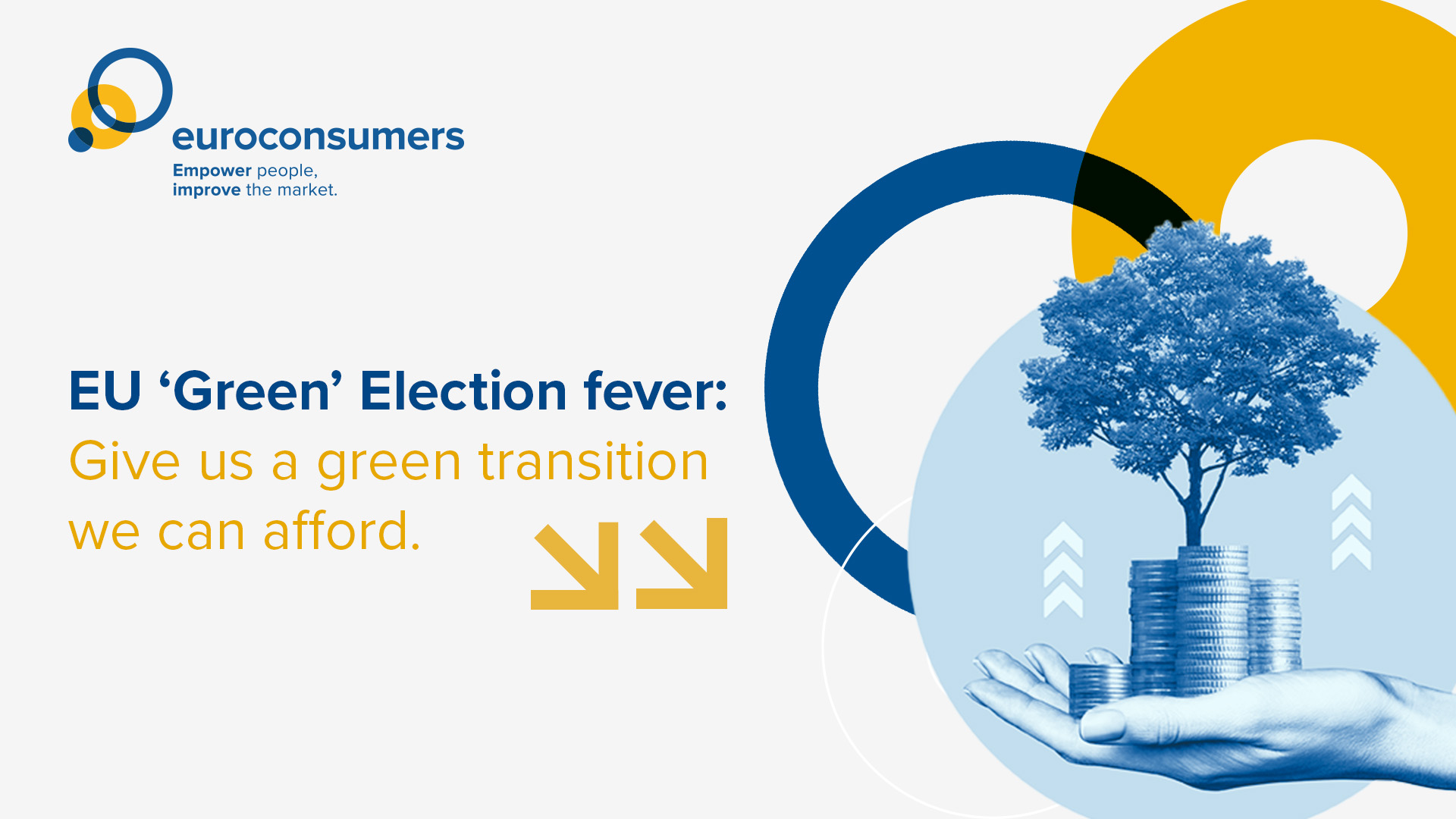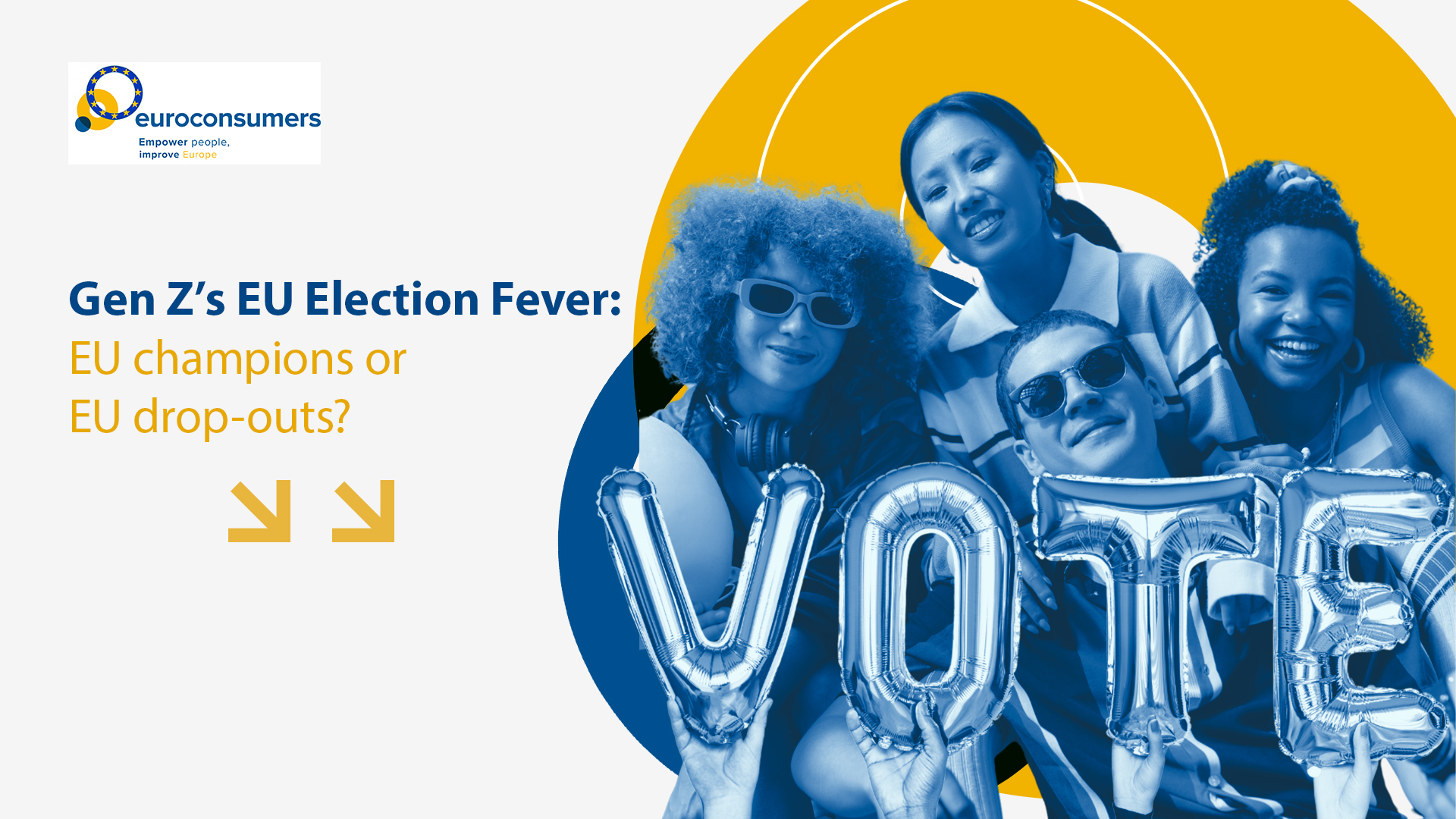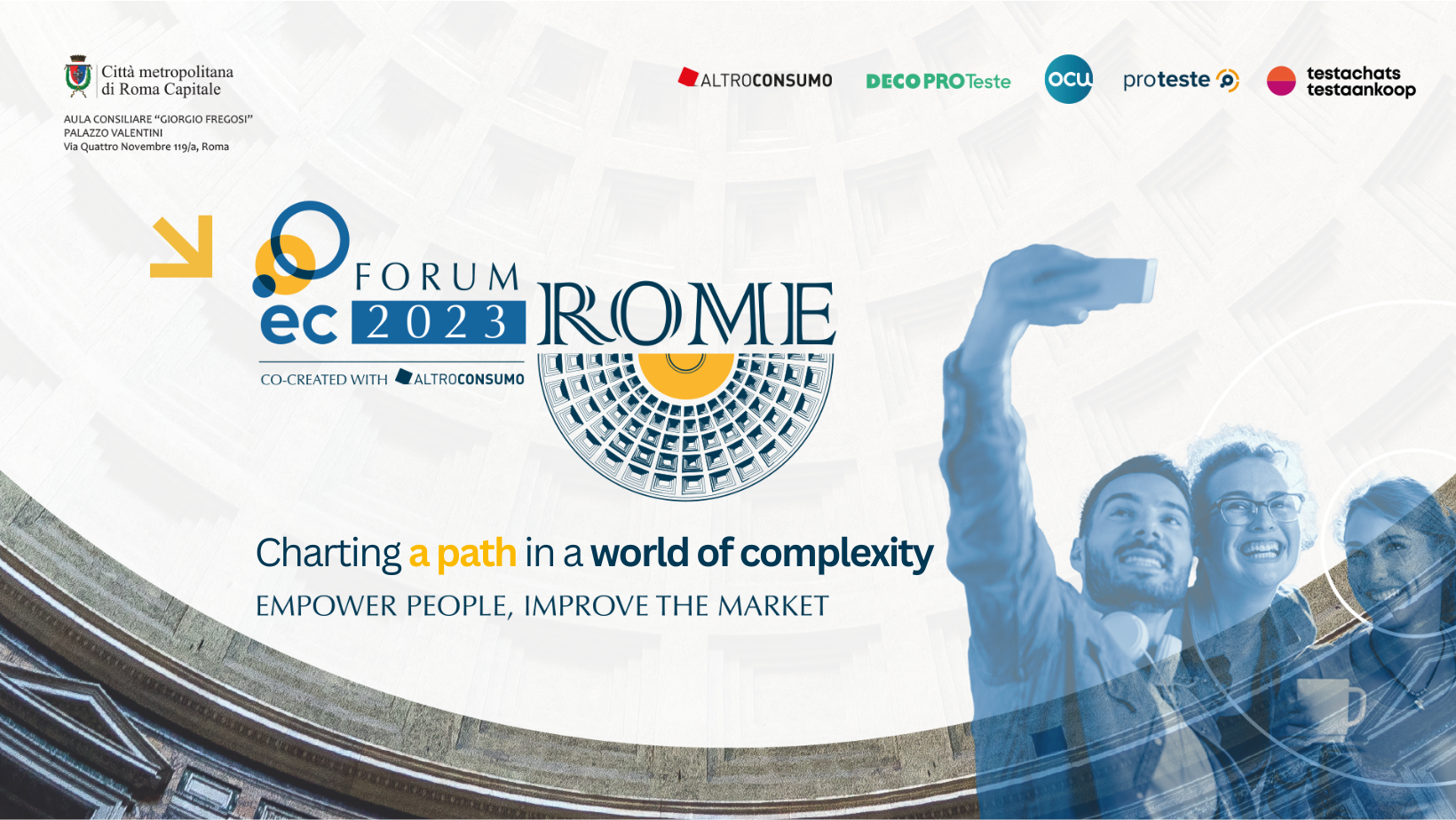Younger and first-time voters are expected to come out in large numbers next month to choose who should represent them in the tenth European Parliament.
2019 saw a significant rise in overall EU election turnout, driven by much higher numbers of younger voters than in 2014, with a 14% increase in under 25s voting and a 12% increase in those aged between 25 and 39. This level of participation is expected to continue, boosted by the eligibility of 1.7 million new, younger voters aged 16 or 17 in Belgium, Germany, Malta, Austria and Greece.
Gen Z is taking to the polls
But what do young people think of the EU, and what do they want it to do for them? A brand new survey from Euroconsumers asked over 4,000 consumers in Italy, Belgium, Spain, Portugal their thoughts on what the EU does for them and what should top its to-do list for the next five years. This blog zooms in on the survey results from the younger consumers aged 18-34:
Some positive vibes
They are more positive about the EU than older people, 48% of them believe the EU has a positive impact, compared to 42% of those aged over 35. And on the flipside, only 28% of younger people perceive the EU to have a negative impact on their lives, compared to 37% of the older age group.
Young people had a more positive view on what the EU had achieved on things like green transition, securing digital interactions, energy prices and immigration. 31% of them thought overall the EU had done a good job, against 24% of the over 35s.
There are interesting nuances in terms of how younger voters view their identity role in the world. More of them perceive themselves firstly as European, and then by their nationality than their older counterparts: 24% vs 18% of 35-74 year olds.
Yet, it’s the older respondents (55-74 years old) who tend to perceive the EU as an important player and give more support to a further strengthening and integration of the EU. Even so, amongst younger voters, there appears to be a more positive perception of the EU on more practical aspects and the support it provides to consumers.
Shared concerns about costs, conflicts and climate
We asked people to rank what they were most concerned about and what they expect the EU to prioritize in the next parliament.
Common ground across all age groups is the concern for the cost of living crisis that tops the list of worries for both younger and older voters and comes in 17 percentage points above the next on the list.
All age groups were also concerned about climate change, and the ongoing conflicts in Europe and the Middle East and the potential escalation into a new world war.
The survey also found that a huge amount of respondents want their representatives to keep the long term in sight, and not be distracted by shorter term election timetables.
An overwhelming majority of 80% said that when taking decisions, the EU should always consider the impact of its decisions on the future generation.
Younger people and immigration
Across all age groups, immigration is the issue that has the biggest influence on how people view EU performance. However, there were differences in how it ranked in terms of priorities to be addressed. A third (33%) of young people ranked it as important, compared to 41% of people aged 35+.
A little bit more faith in the EU
Younger and older voters don’t just mostly share priorities, they also share low levels of confidence in the ability of the EU to successfully take on these huge challenges.
It appears that younger voters tend to have slightly more faith in the EU to deal with issues – but this doesn’t translate into a huge vote of confidence.
For example, 19% of 18-34 year olds trusted the EU to deal with the surge in living costs, compared to 13% of 35 – 74 year olds. The biggest difference found in the trust in the EU to address immigration. Here, 22% of younger voters vs 12% of the over 35s had confidence in the EU.
But still, for an age group with the most positive view of the EU’s impact, such low levels of trust in the EU to address some of the biggest challenges doesn’t look good for the institution.
Happy with consumer protection – but not joining the EU dots
Younger individuals are much more positive about how well protected they are as consumers in the EU. More 18-34 year olds (36%) feel consumer protection in the EU is high, compared to 19% of 35-74 year olds.
Despite feeling more protected, young people can’t always put their finger on how the EU has helped to develop consumer protection.
They are more likely to know about roaming charges, getting flight compensation or rights to return and refund online shopping deliveries, but are less likely to know the EU is behind most of these rules.
They also don’t seem to be aware of the many EU activities designed to tackle some of these future challenges like climate change or sustainability in the consumer market.
So, 46% of younger consumers thought things like the right to repair were important, but two thirds of people had no idea the EU had anything to do with the legislation. Again, for fighting greenwashing again, over half said it was important (53%), 44% knew it was down to the EU, but actually only 19% knew much about how it worked.
Action to cut cars’ CO2 emissions gave the EU the highest profile – 70% of people knew it was an EU action and 38% felt well informed.
Would more awareness and recognition that these are mostly due to EU strategy and policy improve young people’s perceptions and confidence in the EU even more?
What does it all mean?
Compared to their older millennial and Gen X cousins, young Gen Z consumers are not giving up on the EU yet. Instead we find them leading the positive EU vibes, a cohort with more confidence in the EU to deal with some very sticky challenges, and with a better opinion on its performance.
But no one should rest on their laurels and take the younger generation’s support as a given. The high numbers of young voters bring with them high expectations and a clear message: listen to us and think of our future when taking decisions on important matters like inflation, the wars and climate change.
As the next group of MEPs take up their seats, they and all those responsible for European policy must not throw away this opportunity to empower and secure what could be the next generation of EU enthusiasts.






